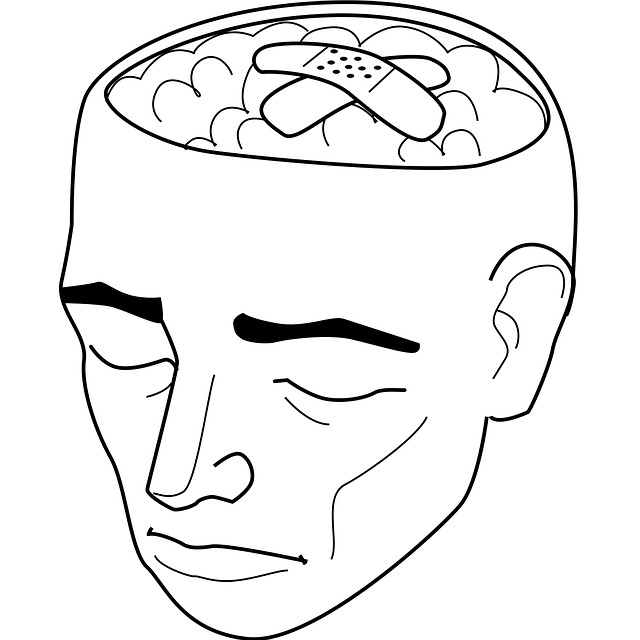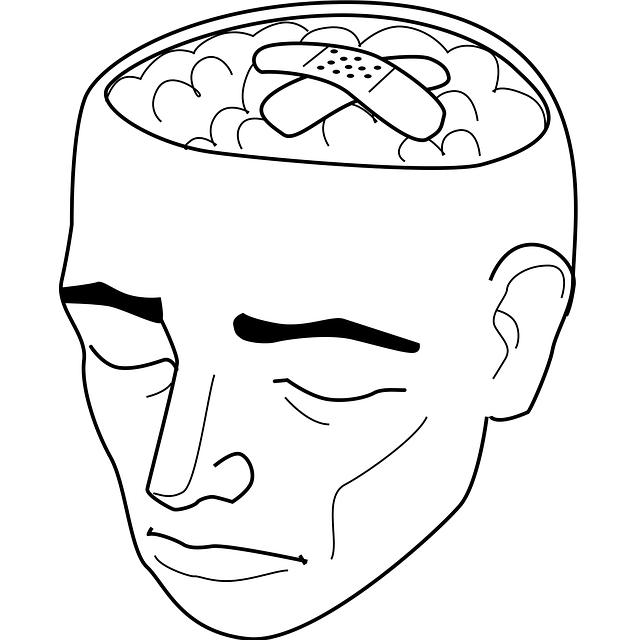Depression, often unnoticed in its early stages, can be prevented and managed through a multi-faceted approach combining therapy (especially Cognitive Behavioral Therapy), parenting skills, trauma support, stress management, and self-care. Early intervention is crucial, targeting both adults and children, as many mental health issues stem from childhood experiences. Effective parenting involves creating safe spaces, open communication, emotion recognition teaching, and crisis intervention guidance. Lifestyle changes like exercise, balanced diets, and adequate sleep also play a significant role. Community support through Mental Health Education Programs, coupled with professional therapy and parenting skills training, forms a robust safety net against depression, especially in adolescents.
Depression is a prevalent and serious mental health concern, but prevention is key. This article explores comprehensive strategies to safeguard your mind and foster resilience against depressive episodes. We delve into recognizing early signs, as awareness is empowering. Discover the transformative power of therapy for adults, specifically tailored techniques for building resilience through parenting skills, and lifestyle adjustments that cultivate a happier mindset. Additionally, we guide you towards community resources and professional help.
- Recognizing Depression: Early Signs and Symptoms
- The Role of Therapy in Adult Depression Prevention
- Building Resilience: Parenting Skills for Mental Well-being
- Lifestyle Changes for a Happier Mindset
- Seeking Support: Community Resources and Professional Help
Recognizing Depression: Early Signs and Symptoms

Depression is a complex mental health condition that can often go unnoticed in its early stages. Recognizing the subtle signs and symptoms is crucial for effective prevention and timely intervention. The journey towards preventing depression involves being attuned to changes in mood, energy levels, and daily functioning. One of the first indicators may be persistent feelings of sadness, hopelessness, or emptiness that last for weeks or longer. Individuals might experience a significant loss of interest in activities once enjoyed, leading to increased isolation and withdrawal from social interactions.
Additionally, changes in appetite and sleep patterns can be red flags. Insomnia or sleeping too much, fatigue, and difficulties concentrating are common early symptoms. The presence of these signs, especially when coupled with feelings of worthlessness or guilt, difficulty making decisions, and recurrent thoughts of death or suicide, warrants further evaluation. Seeking professional help through therapy for adults, particularly cognitive-behavioral therapy, can be a game-changer in managing and preventing depression, especially when combined with effective parenting skills for those who are parents. Trauma support services and stress management techniques also play a crucial role in addressing underlying issues that may contribute to depressive episodes. Self-care practices, such as regular exercise, mindfulness meditation, and maintaining a balanced diet, can significantly enhance overall well-being and resilience.
The Role of Therapy in Adult Depression Prevention

Depression prevention strategies often include therapy, which plays a pivotal role in empowering adults to manage and overcome emotional challenges. Cognitive Behavioral Therapy (CBT), for instance, is widely recognized as an effective approach for treating depression and preventing its recurrence. CBT focuses on identifying negative thought patterns and replacing them with healthier alternatives, thereby improving one’s perspective on life and enhancing mental wellness.
In the context of adult depression prevention, therapy goes beyond addressing symptoms. It equips individuals with essential parenting skills to nurture their emotional well-being. Through therapy sessions, adults can learn effective coping mechanisms, improve self-esteem, and receive crisis intervention guidance when facing stressful situations. Mental Wellness Coaching Programs developed around these principles have shown promising results in fostering resilience and promoting long-term mental health.
Building Resilience: Parenting Skills for Mental Well-being

Parenting is a powerful tool for fostering mental well-being and building resilience, especially during formative years. In today’s fast-paced world, where stress and anxiety are prevalent, equipping children with strong emotional skills can be transformative. Therapy for adults often emphasizes the importance of early interventions, recognizing that many mental health challenges stem from childhood experiences. By nurturing a child’s emotional healing processes, parents can play a pivotal role in preventing depression and promoting overall mental health awareness.
Effective parenting skills involve creating a safe and supportive environment, where children feel understood and valued. This includes active listening, open communication, and teaching them to recognize and manage their emotions. Crisis intervention guidance can be incorporated into daily routines, helping kids navigate challenging situations with adaptability and resilience. Building these skills not only prepares them for life’s curveballs but also strengthens the parent-child bond, fostering a sense of security and self-worth that contributes to long-term mental well-being.
Lifestyle Changes for a Happier Mindset

Adopting a healthier lifestyle is a powerful tool in the battle against depression. Simple yet effective changes can significantly impact one’s mental well-being. Regular exercise, for instance, boosts mood by releasing endorphins and reducing stress hormones. It doesn’t have to be intense; even moderate activities like walking or yoga can make a difference. A balanced diet is another cornerstone; nutrient-rich foods fuel the brain and body, while limiting processed items can improve overall health and energy levels. Additionally, prioritizing sleep ensures your mind and body recover adequately, promoting emotional resilience.
Parenting plays a unique role in mental health, especially as children learn from their parents’ behaviors. Incorporating stress management techniques like mindfulness or meditation into daily routines can help adults model healthy coping mechanisms for their kids. Effective communication and conflict resolution skills, learned through therapy or counseling, enable better handling of challenges, reducing the risk of burnout, which is a significant concern among healthcare providers. These strategies are essential tools in fostering happier and healthier families.
Seeking Support: Community Resources and Professional Help

Depression prevention isn’t just about individual efforts; community support plays a crucial role in creating a buffer against mental health challenges. Community resources offer a safety net, providing accessible and affordable options for those struggling. Local mental health organizations often host Mental Health Education Programs Design tailored to raising awareness, fostering open conversations, and teaching coping strategies. These programs empower individuals to recognize signs of depression and seek help early on.
Beyond community initiatives, professional support is invaluable. Therapy for adults specializing in cognitive-behavioral therapy (CBT) and other evidence-based practices has proven effective in managing depression. Parenting Skills training, specifically designed to equip parents with tools to identify and address adolescent depression, can also be life-changing. Crisis intervention guidance from healthcare professionals ensures individuals receive immediate support during intense episodes, preventing escalation. Community outreach program implementation targeting at-risk populations further strengthens this safety net, ensuring no one struggles alone.
Depression prevention is a multifaceted approach, encompassing early recognition, therapy for adults, building resilience through parenting skills, lifestyle changes, and seeking community support. By integrating these strategies into daily life, individuals can foster mental well-being and strengthen their ability to navigate life’s challenges. Whether it’s through professional help or personal initiatives, each step contributes to a happier and more resilient mindset.














